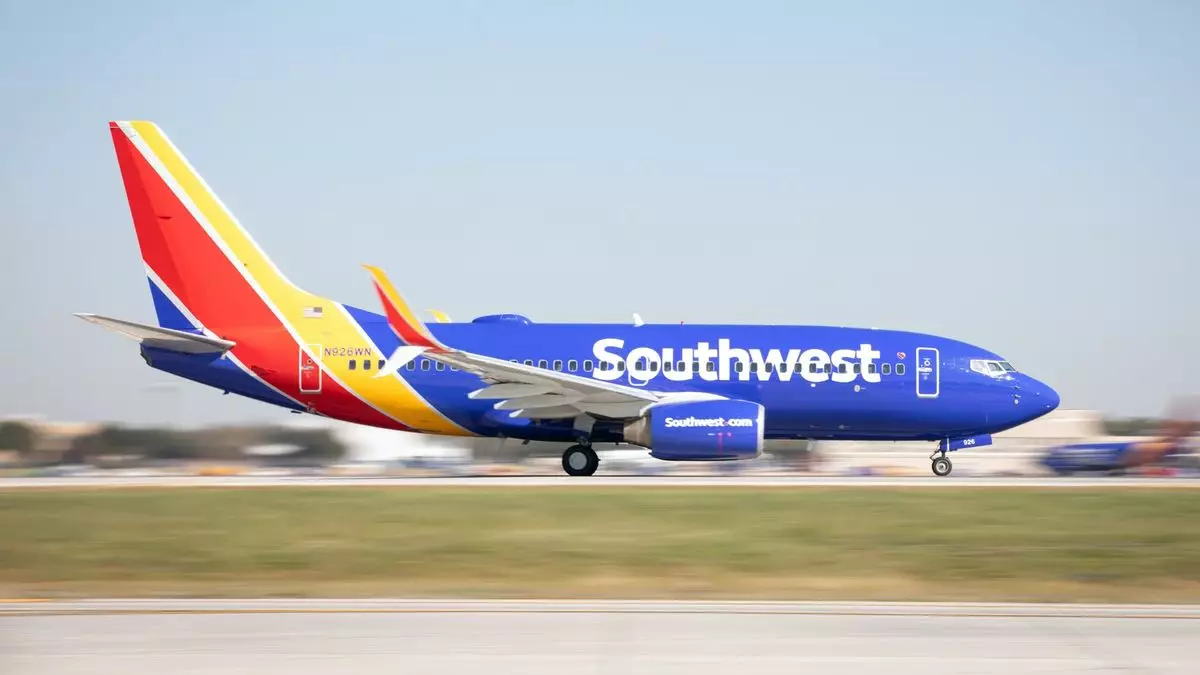The recent legal actions against prominent airlines such as Southwest and Frontier have brought the issue of chronic flight delays to the forefront of public debate. With the Transportation Department (DOT) and the Justice Department stepping in, these lawsuits signal a shift in how regulators address recurrent delays that disrupt travelers’ lives. The overarching aim is to hold airlines accountable for their operational shortcomings while ensuring consumer rights are protected.
The DOT has filed a significant lawsuit against Southwest Airlines, alleging that the airline operated two flights that were chronic offenders of timely arrival from April through August of 2022. The flights in question ran between Chicago and Oakland and Baltimore and Cleveland. According to DOT guidelines, a flight is considered “chronically delayed” when it arrives more than 30 minutes late more than 50% of the time over a consecutive four-month period. Such delays not only inconvenience travelers but also reflect poorly on the airline’s scheduling and operational integrity.
The lawsuit filed in the U.S. District Court for San Francisco seeks the maximum penalty for each violation, which could amount to $37,377 daily. These serious allegations challenge the very foundation of Southwest’s operational claims, setting a precedent for potential repercussions if proven guilty. Southwest has countered the allegations, emphasizing their long-standing performance record, stating they have operated over 20 million flights without prior violations of the DOT’s chronically delayed flight policy.
In a separate but similarly troubling case, Frontier Airlines has also drawn the ire of the DOT due to its chronic delays between St. Thomas and Orlando. Unlike Southwest, which has opted to contest the lawsuit, Frontier has chosen a path of compliance. The airline has agreed to a consent decree, wherein it will pay half of a $650,000 fine to avoid a protracted legal battle. The remaining balance of the fine will be waived if Frontier maintains compliance and avoids any further chronic delays over the next three years.
This decision highlights varying strategies among airlines when addressing regulatory actions, with Frontier adopting a more conciliatory approach in the face of accountability. They argue that many delays stem from unpredictable external factors, such as adverse weather and unforeseen construction delays, thereby attempting to shift the narrative away from internal operational failures.
The ongoing litigation against these airlines represents a broader push for more stringent oversight of the aviation industry. Under the leadership of DOT Secretary Pete Buttigieg, who has actively pursued greater accountability, these lawsuits are part of a new initiative to penalize airlines that fail to meet punctuality standards. This shift in regulatory tone may indicate an evolving landscape for air travel, where consumer dissatisfaction regarding delays is met with concrete consequences for airlines.
The importance of timely travel cannot be overstated, as delays ripple through countless lives, impacting not only the immediate travelers but also the logistics linked to various interconnected travel plans. The DOT’s determination to hold airlines accountable is driven by an increasing recognition of the frustrations faced by passengers, who rely on accurate scheduling to manage their lives effectively.
As the airline industry grapples with the ramifications of these lawsuits, it is essential to consider the potential outcomes. Will these legal challenges lead to improved punctuality and reliability in air travel? Or will airlines continue to navigate around regulatory mechanisms, prioritizing profitability over accountability?
The lawsuits against Southwest and Frontier mark a critical moment in the evolution of airline regulation in the United States. As consumers demand greater transparency and reliability, the aviation industry may be compelled to re-evaluate its operational practices. Ultimately, this could lead to a more accountable system that prioritizes passenger experiences, promoting an air travel environment where delays become the exception rather than the norm.

